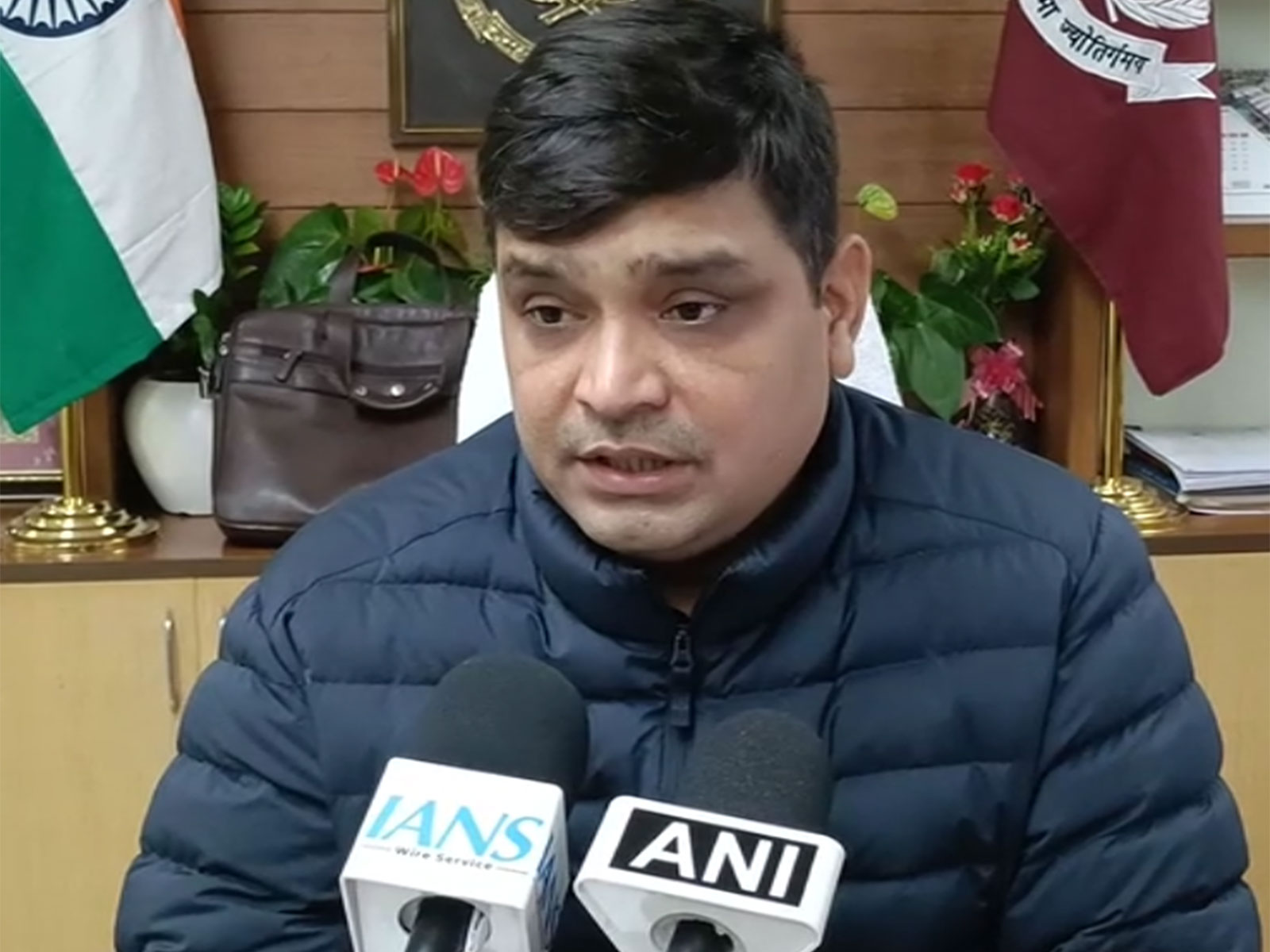Mental health experts tell how to manage stress
Feb 04, 2022

Washington [US], February 4 : We all go through stress in our lives, no matter how hard we try to avoid it. Now, a few mental health experts have given advice on how to manage stress amid the pandemic.
As per Fox News, here are a few things you can try to stay stress-free:
1. The STOP skill
This is a savvy strategy shared by Dr. Sabrina Romanoff, clinical psychologist and professor at Yeshiva University in New York City, from a branch of therapy called Dialectical Behavior Therapy, or DBT.
"Stop stands for: Stop; Take a step back; Observe; Proceed mindfully," she explained.
"When emotions take over, you may find that you act impulsively. When you react impulsively, you do not have time to use your arsenal of skills," she added.
If you find yourself panicking in a situation, you can always use the "STOP" skill to regain control of the situation.
2. The TIP skill
Another M.O. from DBT, Romanoff breaks "TIP" down, "Tipping the temperature of your face with cold water; intense aerobic exercise; Paced breathing, and Paired muscle relaxation," she said, noting that each of these techniques has the effect of quickly changing your biological response pattern to stress.
"In turn, they lead to a decline in your emotional arousal. These skills work like fast-acting medications," she added.
By grounding yourself in the present moment, you'll be able to cope better with whatever's at hand.
3. Put your face in cold water for up to a minute
"Bend over, hold your breath, and immerse your face in a bowl of cold water for up to 60 seconds," offered Romanoff.
"This is usually sufficient to induce the 'dive reflex.' The colder the water and the longer the immersion, the better it works," she added.
As Romanoff further explains, the dive reflex is when our hearts tend to slow down below resting heart rate when submerged in cold water without oxygen, due to increased activation of the parasympathetic nervous system, which decreases arousal. You may find taking an icy cold shower resets your mood, too.
4. Taking sunshine
"Having fewer hours of daylight can have a negative impact on your mood," Doreen Marshall, vice president of mission engagement at the American Foundation for Suicide Prevention (AFSP) states.
To help cope with less sunlight, she recommended finding 30 minutes to get outside.
"You can simply sit and watch the sunrise or walk around your neighbourhood, whatever you do, just make an effort to make it a daily habit," she said.
"Many people think that you have to do vigorous exercise to get benefits, but research, including in my lab, has found that you really don't," echoes Thomas Plante, a psychology professor at Santa Clara University and adjunct clinical professor of psychiatry at Stanford University Medical School.
"Stress reduction can be found by taking brief walks. Try to take a walk each day, even if it is only for 15 minutes, and you'll be less stressed over time," he added.
5. Connect with family and friends
"Chances are pretty good that you are not alone in feeling lonely, and sharing how you are feeling may empower others to do the same," said Marshall.
"Reach out to someone who may also be feeling that way and talk about ways you can stay connected and support each other," she added.
"As the saying goes, what goes around comes around. We live in remarkably stressful and rather apocalyptic times where stress-related difficulties create a tsunami of mental health challenges," said Plante.
"When we are kind to others they typically are kind back to us, a positive boomerang effect that then can lower stress, anxiety, and depression, for all of us," he added.
6. Identify your triggers
"The most efficient way to reduce stress is to begin engaging in stress reduction techniques as soon as you become aware that you are experiencing stress," stated Lin Sternlicht, a therapist and co-founder of Family Addiction Specialist, based in New York City.
"In order to do so, it is important to identify triggers that might invoke stress, thereby making us better prepared to deal with the stress when we anticipate it," Sternlicht added.
Triggers depend from people to people but may include certain people, places, things, foods (caffeine is often a culprit), activities, times of the year or times of the day.
During such times you can opt for a quick guided meditation track, repeating a calming mantra or playing relaxing music.
As Sternlicht also noted, pay attention to physiological cues you may have when you encounter a trigger, like muscle tightening or increased heart rate.
7. The big picture
"Too often we are stressed by the little things, daily hassles, making mountains out of molehills," said Plante.
"We need to take a deep breath and ask ourselves if whatever is troubling us really matters in the big picture. If not, let it go," he added.
8. Forgiveness
Whether you are holding a grudge against someone or a friend is getting on your nerves, forgiving them will relax you.
"Forgiveness is a powerful tonic for bitterness, anger and upset," said Plante.
"Practice it regularly, not often easy to do I admit, but you can get better at it, and you will feel less stressed," he added.
9. Grounding Method
"An important technique to stop the stress response is to ground yourself in the present moment. Stress is often triggered by experiences that are not occurring at the moment, often stemming from past or future events and mind wandering," said Sternlicht.
"As such, grounding oneself is an effective technique to relieve stress. There are many techniques to ground yourself in the present moment, and the more you practice them the easier and more natural it will become," Sternlicht added.
One of Sternlicht's go-to is the 5-4-3-2-1 Grounding Method.
"Simply think of five things you can see, four things you can touch, three things you can hear, two things you can smell, and one thing you can taste. It's a great technique to stop the 'wandering mind' from dwelling on unhelpful, stressful thoughts," Sternlicht said.
10. Stress Dump
"Stress is a result of ruminating thoughts. As such, a helpful tool is to let them out and release them. I call it a stress dump, some may call it a brain dump, journaling or a list. The key here is to put pen to paper and start writing. You may want to write down things that are stressing you out and why they are stressing you out," shared Sternlicht.
"There is a physiological and psychological release that occurs when we take this action of literally getting the thoughts out of our head and putting them on paper. Doing so allows us to begin to separate our stress from being a part of us, and thereby putting some distance between us and our stress," she continued, adding that seeing our worries on paper may also sometimes help us realize that we may have been overreacting or catastrophizing our concerns.
"Lastly, sorting down our thoughts can also help us clear our head and begin to shift into solution mode and also become more organized with racing thoughts that we may be experiencing," she elaborated.




















